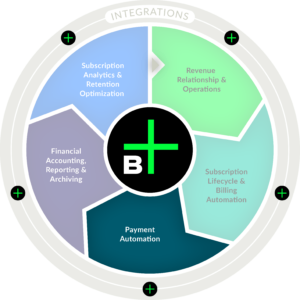

Recurring payment with Billwerk+ YOU supports your automated, consistent billing and revenue collection
With recurring payment with Billwerk+ Subscription Management software you can automatically invoice across Europe and the world. You don’t need manual billing anymore. Follow-up and revenue collections are automated as well. Make data-driven decisions with the valuable insights you gain about your customers and their subscription lifecycle. With our integrated payment gateway, Billwerk+ Payments, invoicing has never been this easy.
High precision & EU compliant invoicing
International VAT & sales tax management
Receivables management
Configurable escalation process
Billwerk+ Payments: Powerful and flexible payment gateway
Billwerk+ Payments: Acquiring service for international cards and currencies
Billwerk+ Payments: Secure and easy to use payment gateway administration
More than 2000 leading companies are already relying on Billwerk+, the European market leader for recurring payment


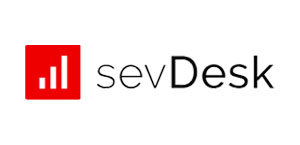
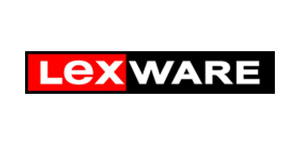

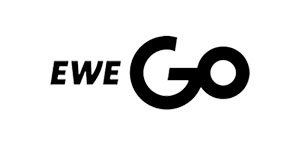

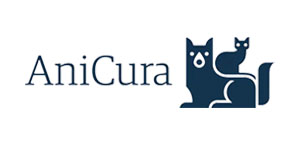
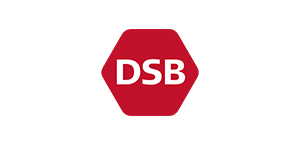


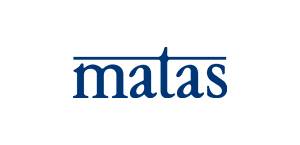

“We have found a reliable partner in Billwerk+ for the management and billing of our subscription model.”
Christian Storch, Head of Software Development, EXARING AG (Waipu.tv)
Focus on your customers and let us handle the recurring payment for your subscription business.
Benefits for YOUR business
Global dynamic sales taxation
Certified GoBD conformity
European data protection according to GDPR
Pricing and conditions management
Customizable billing cycles
Advance invoices and pro rata payments
Multi-currency support
E-invoicing through ZUGFeRD, xRechnung and other European e-invoicing formats.
The payment gateway from Billwerk+ Payments is fully-fledged and the preferred payment gateway of thousands of businesses across Europe
- Automate subscriptions, billing, recurring payments, one-off as well as periodic services
Different payment methods available and with Billwerk+ Payments we offer you a large selection of local payment methods; SEPA, MobilePay, Vipps, Swish, iDEAL, BLIK, Bancontact and many more
Financial accounting integration incl. automated accruals and deferrals
Flexible, automated dunning process
Multi-language support

With Billwerk+
Subscription Management &
Recurring Payment
we help YOU to:
Reduce the effort and costs of your processes
Minimise error rates, and do so in compliance with all regulatory requirements
Automate subscriptions, billing, recurring payments, one-off as well as periodic services
Increase competitiveness
Shorten time-to-market for new products, optimise CLV and reduce churn rate
Automate your subscription business with safe and secure recurring payment processes. Let’s talk!
More about
recurring payment
With the recurring payment model, your customer is charged automatically at regular intervals, such as monthly or annually, for a subscription service or product. You benefit from predictable and consistent revenue streams for YOUR business whereas your customer gets a more convenient recurring payment process.
Recurring billing refers to recurring invoices, while recurring payment refers to recurring payments. Recurring billing is a payment model that allows subscription companies to bill subscribers at predefined time intervals (e.g. weekly, monthly, annually, or user-defined) for the products or services they purchase.
Recurring payment, on the other hand, describes a payment model in which customers authorize the direct-debit merchant to automatically and regularly debit funds from their account for the goods and services provided to them.
A well-integrated recurring payment platform offers a high degree of automation. Its main objective is to simplify the user’s operational processes. For example, it makes it possible for companies to invoice and bill for recurring and dynamic subscription services. The variety of payment methods is particularly important here. Credit card, SEPA direct debit, payment on account or PayPal are standard and should be included. For both subscriptions and one-time online sales, the software should localize the checkout process for visitors, thus enhancing the user experience. Therefore, when selecting the right recurring payment system, companies should ensure that different languages and currencies make (recurring) payments possible worldwide. The scope of available payment service providers is also an important criterion. Can new, additional providers be integrated if required? In addition, companies should definitely check whether the software is EU-DSGVO and PCI compliant and whether the company can rely on an appropriate level of security.
The most important criteria away from the applications are an intuitive user interface that enables quick familiarization and uncomplicated use. Comprehensive support from the manufacturer throughout the entire product lifecycle is also a decisive criterion when selecting a good recurring payment solution.
Whether one-time payments or recurring payments are better for you depends on your business needs. If you have an e-commerce relying solely on one time sales and you’re not offering some recurring payments service such as subscriptions, then one-time payments could be the best choice for you. If your product or service are used recurringly by your customers, a recurring payments solution might be a great additional choice for you. No matter if you need one-time payments or recurring payments, Billwerk+ can provide the payment solution flexible to your needs.
In Billwerk+ you don’t only get a flexible and adaptable payment gateway, you also get a powerful subscription management solution full of innovative easy-to-manage features – all in one login. Get a subscription management solution that will grow your recurring business. You will get everything you need to grow your business with recurring billing without the need for a developer.
In one-time pricing models, typically used in e-commerce businesses, one-time payments are made. In return, the purchased product can be used indefinitely until the end of the product life cycle. If the product or service is needed again, the customer returns and makes another one time purchase.
In the case of recurring payments, customers authorize the retailer to automatically debit sums of money from their accounts at regular intervals – a subscription. With such recurring payments, the subscription service continues until the customer revokes their permission or the subscription expires.
Learn more about the benefits of starting with subscriptions.
Yes, recurring payments with Billwerk+ are PCI-compliant. PCI compliance includes standards and guidelines for companies that involve personal data related to credit cards. Learn more about PCI Security Standards.
With a wide range of functions, recurring payment solutions are able to support companies. The following are the most important:
– Invoicing: recurring payment invoices can display all types of charges, including pending or outstanding payments, interest or taxes. In doing so, recurring payment platforms generate a clear history along the complete customer journey. In addition, the billing function can automate the creation, scheduling and sending of invoices, while allowing customers to update customer data via a self-service portal or make upgrades quickly and easily.
– Analytics & Reporting: Every company monitors key metrics such as (monthly) revenue, churn rate and customer acquisition costs. Subscription data, in particular, allows for meaningful content that can be used to guide a business. Ergonomic, customizable dashboards provide all necessary information clearly and in detail. This allows sales to be analyzed from different angles.
– Dunning: Dunning is a feature that is essential for recurring invoice software and helps merchants deal with failed payments (e.g., bounced checks or declined credit cards). Tedious and time-consuming tasks such as repeated debiting of the payment and communication with the customer are automated. In this regard, state of the art billing systems are able to send automated form-based emails to inform customers about non-payments, price adjustments but also next steps.
– Product Catalog: Software that processes recurring invoices has one primary goal: to simplify processes and free up capacity. Each product has its own price plan, additional services, fees, or currencies, which makes things even more complex. A product catalog helps to centrally manage all product lines and plans and increases time-to-market for products or services.
– Security: One of the main benefits of recurring payment solutions is increased security for businesses. Data protection compliance and the secure transaction of amounts are guaranteed and companies are on the safe side in terms of data protection.
A recurring payment system or recurring payment software is designed to automatically process recurring payments and avoid late payments thanks to payment automation. Billwerk+ recurring payment solution offers a built-in payment gateway to accept recurring payments online and a subscription billing platform that handles tokenisation, plans, trial periods, integrations and all the other subscription features you need for your business – all in one easy-to-manage platform.
Recurring payments provide additional flexibility and are therefore suitable for a wide range of companies in many different industries. Whenever a company charges for its products or services on a cyclical basis, recurring transactions are suitable. On the one hand, these include established industries such as print media, the food and beverage industry, passenger transport (with monthly and annual passes) or fitness studios. But new products and services that are emerging as part of digitization and Industry 4.0 also benefit from subscription payments.
E-commerce, whose sales are constantly rising, streaming providers, who have become an indispensable part of everyday life, or the health sector can rely on the business model. In the B2B environment, recurring payments in the SaaS industry or in hosting & IaaS simplify operational processes. Any company that generates revenue through recurring payments will benefit from a recurring payment system.
How do companies receive Recurring Payments?
Recurring payments are collected automatically on an interval set by your subscription plans. The Billwerk+ payment gateway handles the payment processing.
How do you set up Recurring Payments?
To be able to accept online recurring payments, you need to use a payment service provider such as Billwerk+ and get an acquiring agreement. It’s easy to set your subscription management plans for recurring payments in the Billwerk+ platform.
- Log in to your Billwerk+ Admin. Go to Configurations, choose Plans and in the top-right corner, click Create.
- Fill in the name and description of your subscription plan.
- If you don’t want to use the default Dunning plan, you can set up a customised one in Configuration – Dunning Management.
- Fill in your plan’s pricing and billing schedule.
- Choose how many subscription plan periods you want before a plan can expire – the minimum contract period. Under Notice Period you can set up the number of periods before a cancelled subscription will expire.
- Customise Billing Cycles, Trial and Setup Fee to your needs.
There are two types of subscription payments. With fixed or recurring payments, customers are billed the same amount each time. These are, for example, contributions for streaming platforms or gym memberships. With variable or irregularly recurring payments, the invoice amount changes. The reason for this is, for example, the scope of use or the amount of consumption.
Every business has different needs. With Billwerk+, you can set multiple recurring payment plans, to provide the best options for your customers. You can try a variety of different billing cycles and prices, to suit all your recurring payments needs.
The terms AutoPay and Recurring Payment are used synonymously. Even though the principle is the same, there is a small difference: for payments via AutoPay, the payment amount is debited from the account on the due date. The amount for the minimum payment or the total balance can be different and the due date can change every month. With a recurring payment, a fixed amount is debited on a fixed date.
Simplified operational processes: Businesses that rely on a recurring payment process can be confident that they will receive their payments on time. They can also better predict their cash flow, reduce their billing and collection costs, and automate at least some of their accounting. Ultimately, recurring payments provide merchants with the ability to fully focus on their actual business and product.
Improved customer acquisition: Expensive products scare off many potential customers. Often, they only need certain features or the service for a short time. If product scopes are offered individually – with subscription payments – they are more likely to sign up. Merchants can also set up free trial versions so that their customers can see whether their product or service fits their needs. If this is the case, cyclical billing takes place automatically.
Profitable pricing: if the product or service is used long enough, more revenue is generated than with a one-time payment. By offering subscription payments, merchants can also set up discounts in return for regular payments, meaning the customer is charged more over a period of time than with a lump sum payment, but in smaller installments. This can help merchants attract new customers who may be looking for a good deal.
Strengthening customer loyalty: Recurring payments are convenient and time-saving and can lead to stronger, more lasting relationships with customers than a one-time purchase. The business model offers customers more flexibility. Multiple subscriptions can be made at once if needed. Customers are less likely to switch to the competition.
GDPR compliance: Data protection is one of the key issues in customer data management. Far too often, companies still operate in legal gray areas due to a lack of experience. Their own competencies or a proper handling of sensitive data is often not clearly regulated. Recurring payment software relieves companies of this challenge and ensures legal certainty with tested conformity. However, the benefits of recurring payments do not only affect companies. Subscribers also benefit.
Uncomplicated processing: Convenience for the subscription company and the customers is the most obvious advantage of recurring payments. The customer does not have to repeatedly provide their billing information for routine billing, but can leave their payment details to the merchant.
Increased flexibility: Flexibility is fundamental, especially in B2B, where start-ups or companies moving into new business areas cannot yet estimate which software they need. Cyclically adjustable license scopes give them the flexibility they need. Flexible upgrades and add-ons are also an advantage for companies and subscribers. Customers can test new features for free, companies benefit from the paid addition of new features from their customers previously convinced in the free version.
The world is becoming more and more complex, customer needs more and more differentiated. Requirements are becoming more and more specific, which leads to the most diverse price models. On the other hand, customers are placing more and more value on flexibility; they don’t always want to buy the full scope of products or services. This poses a huge challenge for companies: How can these requirements be reconciled and payments be easily accounted for? Recurring payments are the answer.
Any business is in need of an efficient payment gateway to handle its recurring payments. In Billwerk+ you don’t only get a flexible and adaptable payment gateway, you also get a powerful subscription management solution for your business growth, full of innovative easy-to-manage features – all in one single platform.
- Create multiple subscription plans
- Up- and downgrade management
- Handle discounts, coupons, and trial periods
- Set up your customised dunning automation email flow
- Payment gateway and subscription management in one powerful platform
- Secured and automated management of saved cards with Visa Token Service
- Independent acquiring
- More than 50 available payment methods
- Over 1400 flow integrations
With Billwerk+ it’s easy to level up with our different product packages without losing any of your setups, customer lists, or chosen features. Learn more about the benefits of subscriptions.
Recurring Payment, also called recurring payment, is an automated transaction. It is often also referred to as AutoPay. Customers give a company permission to collect cyclical payments for goods or services from their own bank account or to charge their credit card. Recurring payments of this kind are ideal for efficiently processing recurring monthly customer payments for software products, for example. The company works with payment service providers (PSPs) who take care of everything from the payment request to the recurring payment. Specialized PSPs complete the process right through to invoicing. In return, the company pays a transaction fee to the PSP. The rates vary depending on the provider.

